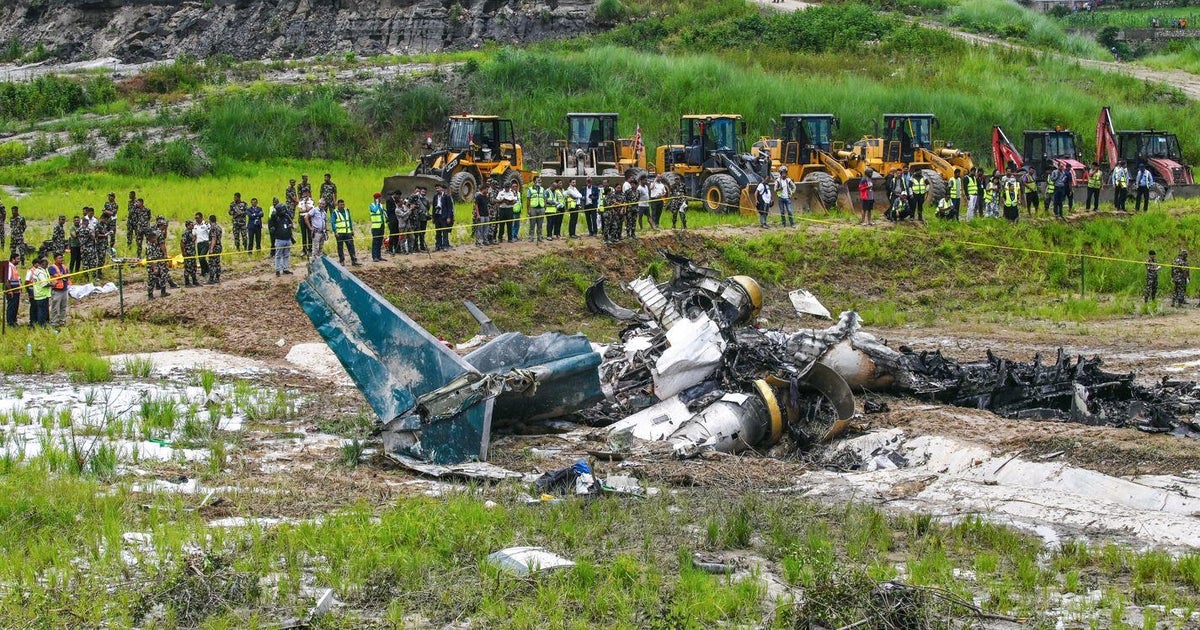Space experts slam China for "playing the odds" with "negligent," out-of-control rocket re-entry
Hong Kong — Criticism is raining down on China after the remnants of its out-of-control Long March rocket crashed into the Indian Ocean on Sunday.
"It is clear that China is failing to meet responsible standards regarding their space debris," said NASA administrator Bill Nelson, a former astronaut and senator. "Spacefaring nations must minimize the risks to people and property on Earth of re-entries of space objects and maximize transparency regarding those operations."
The massive 100-foot, 20-ton hulk of the Long March 5B caused global concern last week as it spun around the planet at 18,000 miles an hour — once every 90 minutes. The rocket blasted off from China's southern island of Hainan on April 29, successfully ferrying the first module of China's new space station into orbit.
The failure, experts told CBS News' Ramy Inocencio, was in the rocket's design, but it was rooted in the will of China's space program officials.
"It was negligent of them to design their rocket this way," Harvard-Smithsonian astrophysicist Jonathan McDowell told CBS News.
"It leaves an enormous 20-ton rocket stage in a low orbit around the Earth, and that's something we don't normally do for big rocket stages. We normally make sure they don't go into orbit at all. Or if they do, they have a restart of the engine, which can bring them down in a controlled place. But if you don't have that, if it just dies after delivering its payload to orbit, then it's condemned to enter at some, like random point on the Earth a week or so later, and that's exactly what happened."
China's space command did have other options to bring the rocket down in a controlled fashion, noted McDowell. The module of the future Chinese space station that they were launching also has its own engines.
"If you shut down the big rocket's engines a few seconds early then fire those space station engines just a little bit to do the last little nudge into orbit, that would use about a quarter of a ton of rocket fuel. And that would mean that they would have to refuel the space station a little earlier than otherwise planned, but it doesn't seem like they wanted to do that."
"China bears the responsibility for this," agreed Bill Harwood, CBS News' space analyst at Cape Canaveral, Florida.
"They need a propulsive system of some sort that would let them reorient a rocket body and drive it back down into the atmosphere. They clearly know how to do this. The Chinese have landed spacecraft on the moon. They're getting ready to put a lander on Mars. They have a very sophisticated space program," said Harwood. "It's a bit of a mystery why this isn't something that isn't done on every one of their rockets. It should be."
China's decision led to international anxiety ahead of Sunday's splash-down. Space experts said the timing of the re-entry into Earth's atmosphere and the potential impact of any debris that didn't burn up would only be known with hours to spare.
The last blurry images of the rocket on social media showed the rocket streaking and tumbling through the skies over Jordan and Oman, followed by reports from U.S. and Chinese space commands that the debris might have fallen into the water around the tiny tropical archipelago of the Maldive Islands.
"It's an alarming thing for them to be doing," said McDowell. "China was just playing the odds. They decided, 'yeah, this is a big stage. It's going to re-enter uncontrolled. That's fine. We'll take the risk and we'll pay compensation if it hits anything.' That's not the norm for space agencies around the world."
It was the second time in a year that the remnants of a Long March 5B rocket had rained down on the planet. In May 2020, the first-ever rocket of this type to be launched by China re-entered the Earth's atmosphere out-of-control, breaking up over the Ivory Coast in West Africa.
"The people in the Ivory Coast were not happy that tons of metal came flying out of the sky hundreds of miles an hour at them," said McDowell.
China's Foreign Ministry and state-controlled media played down concerns over this second rocket from the start, criticizing warnings issued by the Pentagon in the U.S. and international reports as "Western hype… not worth panicking about."
McDowell predicted that China would continue to double-down with its denial of any problems with the Long March rocket launches, but that it would eventually make changes.
"It's not going to be constructive just to yell at the Chinese," said McDowell. "I think working with them — but requiring them, that if we work with them, they be careful and tidy — is a more likely way to bring them into the fold than trying to do just negative, like sanctions or something, against them in the space arena. There needs to be international discussions in the next few years about how to manage the new space age that we're really in."




